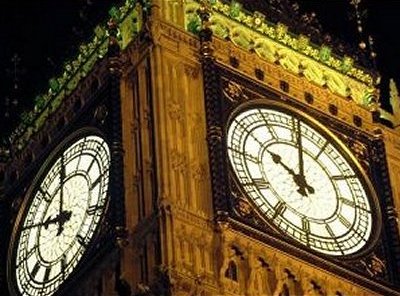
NOT THE TEN O'CLOCK NEWS
Why do we feel an almost religious duty to follow the daily news?
Following the news is an unconscious ritual of many households, compelled by the felt need to stay abreast of big developments. The ubiquity of news means we know far more than we need to but rarely do we stop to critique the experience of such exposure.
The philosopher and atheist Alain de Botton has suggested that news is consumed at such regular moments and in such solemn ways throughout each day (The Today Programme, The World at One, PM and when we’re slumped on the sofa later on, The Ten O’Clock News, perhaps)that it has come to replace the historic daily offices of prayer in our imagination. By them, each day is given rhythm and meaning. Liturgy and scripture have been relegated to the sidelines; the news bulletin is centre stage. But it is imparting a very different message.
Where once, daily liturgies told a story about purpose and place, offering worshippers both personal and cosmic reassurances about the meaning of their lives and their world, the average news bulletin or feed has a disjointed and fragmented feel to it. There is no coherent narrative and successive items crammed into a short space may range across such vastly disparate areas as to leave us feeling disorientated. National politics, foreign affairs, health, social issues, crime, education, health, sport, entertainment and other matters all vie for space in our minds. The tendency to prioritise suffering (‘if it bleeds, it leads’) means our consciences are assaulted by a bewildering assortment of human needs, usually emerging from war, natural disaster and crime.
The shortage of broadcast time and limited human attention span ensure we never quite have a grip on the wider context which would help us to interpret the images – often deeply saddening ones – in a way that gives perspective and may occasionally enable us to take some action. The lack of interest in good news, of which there is so much in life, gives the impression that the world is a frightening, dystopian place. While some corners of the world justify this, many do not, but some newspaper front pages daily pound fear into the minds of their readers that disaster lurks outside their front doors.
Is there an answer to all this? Probably not, but some techniques lie close to hand to help us cope. Less preoccupation with the immediate – who is up, what index is down - and a determination more deeply to research the issues that really matter to us may give us more confidence to approach the wider world. The distracted online grazing of news stories tends to conceal, rather than enhance, understanding. By the same token, the availability of so much information online is a tool for personal education, if we are disciplined enough to pursue it.
Relentlessly bad news challenges prayerful people. Where does their commitment to intercede begin and end? The scope of news coverage now means we are presented with the chance to pray for hundreds of things each day if we wish to. Following news priorities is probably a bad answer, because editorial decisions lead us from one problem to the next without resolution. The earthquake which shattered Nepal in early 2015 has disappeared from the news, to be replaced by Isis advances and Fifa’s corruption. Yet the trauma for the Nepalese is only beginning; some of us need to stay with them in faithful and informed intercession.
The need to pray more selectively is like the choice we make over charity. Households that give money receive many requests from other charities to give more. In our giving we have to act intelligently; stewarding our resources lest we are overwhelmed and ensuring money goes where we most want it to. Similarly, our prayers need focus to save them dissipating over a range of issues too broad for us to make a difference. Allowing God to breathe through us as we pray usually guides us to the right places.
There is always the off-button on the remote, of course. Watching the news is not a religious duty and there may be better uses of our time; smarter ways of ending the day, for instance, than being drenched in conflict and disaster. Would we lose our way as active citizens if we did? It turns out an Argentinian Roman Catholic priest called Jorge Mario Bergoglio hit the off-button on his television in 1990 and didn’t return. Whatever happened to him?
POPULAR ARTICLES

Obama's Covert Wars
The use of drones is going to change warfare out of all recognition in the next decades.

Through A Glass Starkly
Images of traumatic incidents caught on mobile phone can be put to remarkable effect.

What Are British Values?
Is there a British identity and if so, what has shaped the values and institutions that form it?


